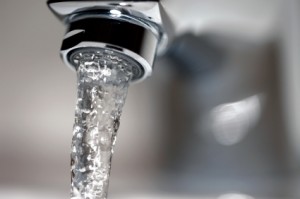 In recent weeks I have started researching fluoride in Australian drinking water after being handed a documentary that made some unbelievable claims. Could it be possible that the fluoride added to our drinking water was not as I had thought, a pharmaceutical grade drug, used to strengthen teeth against decay, but in fact a toxic industrial waste by product sourced from the organophosphate fertilizer industry?
In recent weeks I have started researching fluoride in Australian drinking water after being handed a documentary that made some unbelievable claims. Could it be possible that the fluoride added to our drinking water was not as I had thought, a pharmaceutical grade drug, used to strengthen teeth against decay, but in fact a toxic industrial waste by product sourced from the organophosphate fertilizer industry?
So I decided to research the facts for myself. After much time being left on hold to Sydney water, I was put through to a very helpful head technician at their water processing plant, who confirmed every detail….
The fluoride added to our drinking water is not the naturally occurring calcium fluoride that is found in trace amounts in water from rivers and streams, it is in fact hydroflurosilicic acid. This is a toxic waste by product sourced from the the two Incitec Pivot organophosphate fertilizer plants in Victoria. The research relating to fluoride and dental has been done on calcium fluoride, while to my knowledge, no specific research has been done on the health effects and dental benefits of hydrofluorosilicic acid.
Unlike the fluoride used in toothpaste, hydroflurosilicic acid is not a pharmaceutical grade product. It is an unpurified, industrial grade corrosive acid which has been linked in recent studies to several adverse health outcomes. As it is an unpurified substance, trace amounts of other toxins are thought to present. As a corrosive substance it is also known to leech out heavy metals from older style pluming, adding to the environmental load we are exposed to. This is of particular concern when it comes to children, who are at greater risk of the detrimental effects of heavy metals.
Fluoride has been added to our drinking water in most parts of Australia for many years now. There are certain areas, such as Byron Bay, who have resisted this, but a majority of Australians drink fluoridated water every day. It was introduced to help prevent dental caries, or tooth decay which is undoubtedly an important public health issue. Internationally fluoridated water is a controversial issue and many European countries have totally rejected the use of fluoride, these include; Denmark, Finland, France, Germany, Italy, Netherlands and Sweden. In fact less than 10 countries world wide fluoridate more than 50% of their water supplies – so why do we have it here in Australia?
There are other substances added to our drinking water in order to make it safe against pathogens which can cause water born disease – and on the whole we have safe access to drinking water in Australia. Fluoride, however does nothing to make our drinking water safer, it is added as a medication for the masses if you like, for the sole benefit of our dental health.
The research and science behind the use of fluoride in water is controversial. Most recent large scale studies have found that fluoridated water provides only a minor benefit to dental health, or demonstrates no benefit at all.
According to a recent Canadian government review;
“The magnitude of fluoridation’s effect is not large in absolute terms, is often not statistically significant and may not be of any clinical significance.”
Most dental researchers now concede that any benefit gained from fluoride is achieved via topical application, such as that you would achieve by using fluoride containing toothpaste or mouth wash. there is no systemic benefit gained from the ingestion of fluoride, in fact it may be harmful.
 So what is the purpose of ingesting fluoride and what does it do? The levels of fluoride in our drinking water are indisputably low; however in certain circumstances even these levels may warrant concern. For example when fluoridated water is used in cooking, evaporation may concentrate the levels of fluoride in the food. Fluoride is a common ingredient in toothpaste and other dental hygiene products and the combined total amount from all of these sources may exceed what is considered ideal.
So what is the purpose of ingesting fluoride and what does it do? The levels of fluoride in our drinking water are indisputably low; however in certain circumstances even these levels may warrant concern. For example when fluoridated water is used in cooking, evaporation may concentrate the levels of fluoride in the food. Fluoride is a common ingredient in toothpaste and other dental hygiene products and the combined total amount from all of these sources may exceed what is considered ideal.
Perhaps of greatest concern is the fluoride intake in children and babies. Often parents give their children unfiltered drinking water and use it to reconstitute infant formula. This may have potentially detrimental effects on the health of developing children.
Dental fluorosis is perhaps the most obvious and well recognized side effects of fluoridated water. It appears as a white mottling and pitting of the tooth surface. Overexposure to fluoride between the ages of 3 months and 8 years causes this. It can be unsightly and lead to costly dental intervention for cosmetic purposes later on in life. It has been shown that the risk of dental fluorosis is increased in children who were fed infant formula reconstituted with fluoridated drinking water as infants. The concentration of fluoride in such formulas is up to 200 times greater than that found in breast milk.
 Dental fluorosis is only one of the health concerns related to fluoridated drinking water, other include a potential grater likelihood of bone fractures, bone cancers, joint pain, reduced thyroid activity and detrimental effects on IQ. In fact the US National Research Council has stated that;
Dental fluorosis is only one of the health concerns related to fluoridated drinking water, other include a potential grater likelihood of bone fractures, bone cancers, joint pain, reduced thyroid activity and detrimental effects on IQ. In fact the US National Research Council has stated that;
“It is apparent that fluoride can interfere with functions of the brain”
Fluoride exposure in utero and during early infant development is of particular concern as babies are vulnerable at this time when the blood brain barrier is not fully formed and they are more susceptible to environmental toxins – another reason for pregnant women to be especially careful to drink and cook with filtered water.
Unfortunately a majority of commercially available water filters will not remove fluoride, so it is important to do your homework before investing in a filtration system. Look for reverse-osmosis or alumina systems. Drinking spring water is another safer option however, bottled water is less than ideal for the environment and would prove too costly to use for cooking.
So, my top tips for avoiding excessive fluoride exposure are:
Filter your water! Do some research and invest in a home filtration system that will reduce your exposure to fluoride
Avoid using fluoridated water during pregnancy, make sure your children avoid fluoridated water and never use it to reconstitute infant formula.
Use filtered water for cooking
Wash your fruit and vegetables in filtered water
If you would like to find out more about water fluoridation issues in Australia you can look at the information available at www.qawf.org For international resources you can log onto www.fluoridealert,org

